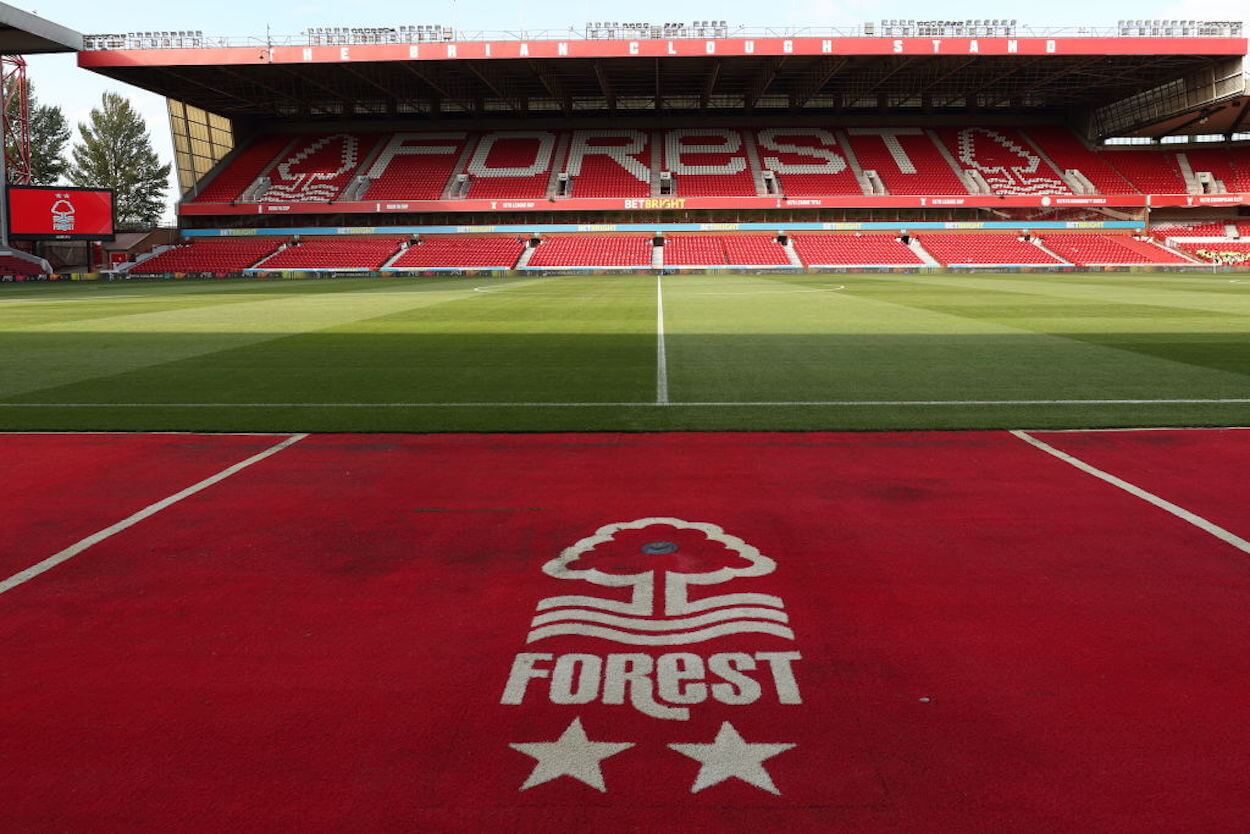Soccer
Why Does Nottingham Forest Have 2 Stars on Their Shirt?

When you think about the biggest names in soccer, a select few names come to mind. If you're a fan of the English game, you'll probably think of the likes of Manchester United, Liverpool, and Arsenal. If you prefer a continental flair, clubs like Barcelona, Real Madrid, or Bayern Munich probably top your list. Nottingham Forest, in all likelihood, is nowhere to be found.
While that's completely understandable — the English club spent a good chunk of time outside of the Premier League — it does overlook some historical triumphs. And, if you ever forget about that golden era, you only need to look at Nottingham Forest's shirt.
There, the two stars say it all.
Nottingham Forest has stars on their badge to symbolize their European Cup triumphs

While there are different rules depending on your location, stars on a football jersey always represent some sort of success. In Nottingham Forest's case, that success is the biggest of all.
The Reds have won two European Cups in their history, which are represented by two stars alongside the “Forest” badge on their shirts. And while European Cups might not sound too exciting — it's evocative of the modern Europa League, which is the second-tier continental competition — things were a bit different back in the day.
At the time when Forest was playing — and winning — the competition, the European Cup was the top level of European action. It was eventually rebranded as the UEFA Champions League, which modern fans know a bit more intimately.
Yes, you read that correctly. Nottingham Forest have what translates to two Champions League titles to their name.
When did Nottingham Forest win the Champions League?
Given their slide down the footballing pyramid — the club briefly fell into England's third tier — you'd be excused for thinking that Nottingham Forest won dominated the European scene when dinosaurs walked the earth. That may be a bit dramatic, but these continental triumphs didn't happen yesterday.
The first victory came within the 1979-80 season, as legendary manager Brian Clough led the Reds past Liverpool, AEK Athens, Grasshoppers, and FC Koln to reach the European Cup Final. There, Nottingham Forest only breached Malmo's sturdy defense once, but that was enough to secure a historic 1-0 win.
That success earned the club a spot in the following year's competition, and the English side made the most of the opportunity. The Tricky Trees overcame Osters IF and Arges Pitesti without too much trouble. The competetion would get tougher, but a 3-2 aggregate victory over Dynamo Berlin and a 2-1 aggregate win over Ajax put Clough's men back in the cup final.
In the 1980 European Cup Final, Nottingham Forest met Germany's Hamburger SV. Things played out similarly, with the English side scoring early and then holding on for a 1-0 victory. With that, the Reds had earned the second star for their jersey.
While that kept them in the competition, Nottingham Forest's window was closed. They fell to CSKA Sofia in the first round, losing both the home and away legs. That, in turn, tanked the team's confidence. At the end of the campaign, the trophy-winning core was broken up in order to capitalize on peak resale value. The rebuilding effort failed to reach the same heights, and the rest is history.
Given how money has changed the modern soccer landscape, it will be incredibly tough for Nottingham Forest ever to reach those European heights again. The stars of their jersey, however, serve as a reminder of what the club once achieved.











